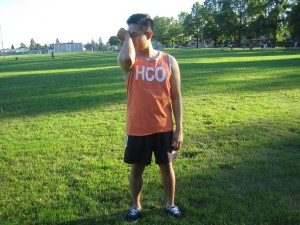Aside from itchy skin, red and itchy eyes can cause discomfort among allergic individuals. There are various types of allergies that affect the eyes including food allergies that lead to swelling. Even allergens from animals and environmental irritants such as pollen or dust can affect the eyes.
Since the eyes do not have a barrier, they are often the first body part to be affected by allergies. Aside from being familiar with the potential triggers and avoidance of the allergen, it is vital that you know how to manage the eye allergies.
Antihistamine
Once the onset of eye allergies is observed, you have to provide the individual with antihistamine. Even though it might take a few minutes for the medication to take effect, it can provide a certain degree of relief. There are various over-the-counter varieties available but a doctor might be able to prescribe a stronger variant.
Artificial tears
It is important to note that artificial tears not only washes some the allergens away, but also helps build up defense in the eyes and prevent the allergens from sticking on the eye surface.
Warm or cool compress

By using a cool compress, it works by reducing the puffiness but a warm compress provides a beneficial effect and reduces the trauma in the eyes. In most cases, gel packs that are stored in a freezer can be used or a bag of frozen peas. In addition, tea bags that are soaked in water can be used to minimize the puffiness.
Washing of hands, eyes and face
Once an allergen is present in the hands or face, the individual might rub his/her eyes, thus shoving the irritants inside the eye. The allergen might be pollen, pet dander or another allergen such as peanut butter. It is important to wash the face and eyes as well as the hands using water and soap.
Considerations to bear in mind
The individual should recall any item that he/she used in the past 24 hours. It might be a new shampoo, soap or skin cream or even a laundry detergent. Once a reaction occurs, stop using these products to prevent the symptoms from worsening.
Do not forget to check if there are other symptoms in other body parts. Oftentimes, only the eyes are affected but in some circumstances, there might be hives or swelling in a different body part. In case there is swelling close to the tongue or throat or difficulty in breathing, it is vital to seek medical attention right away since it might indicate anaphylaxis. Remember that anaphylaxis is a life-threatening reaction that entails immediate medical attention.
A doctor should be consulted if eye allergies have been an ongoing issue and make sure that he/she will seek medical assistance right away if there is swelling in the mouth, face or neck.
